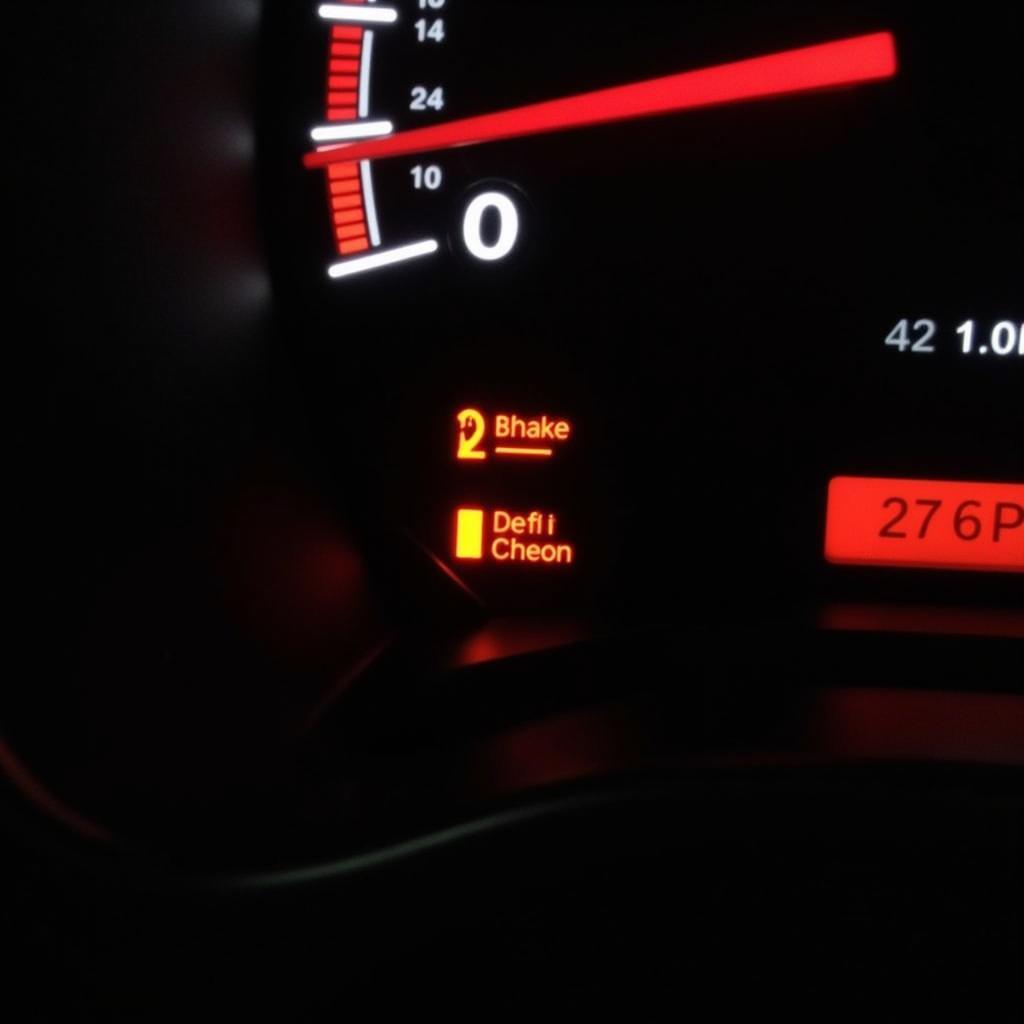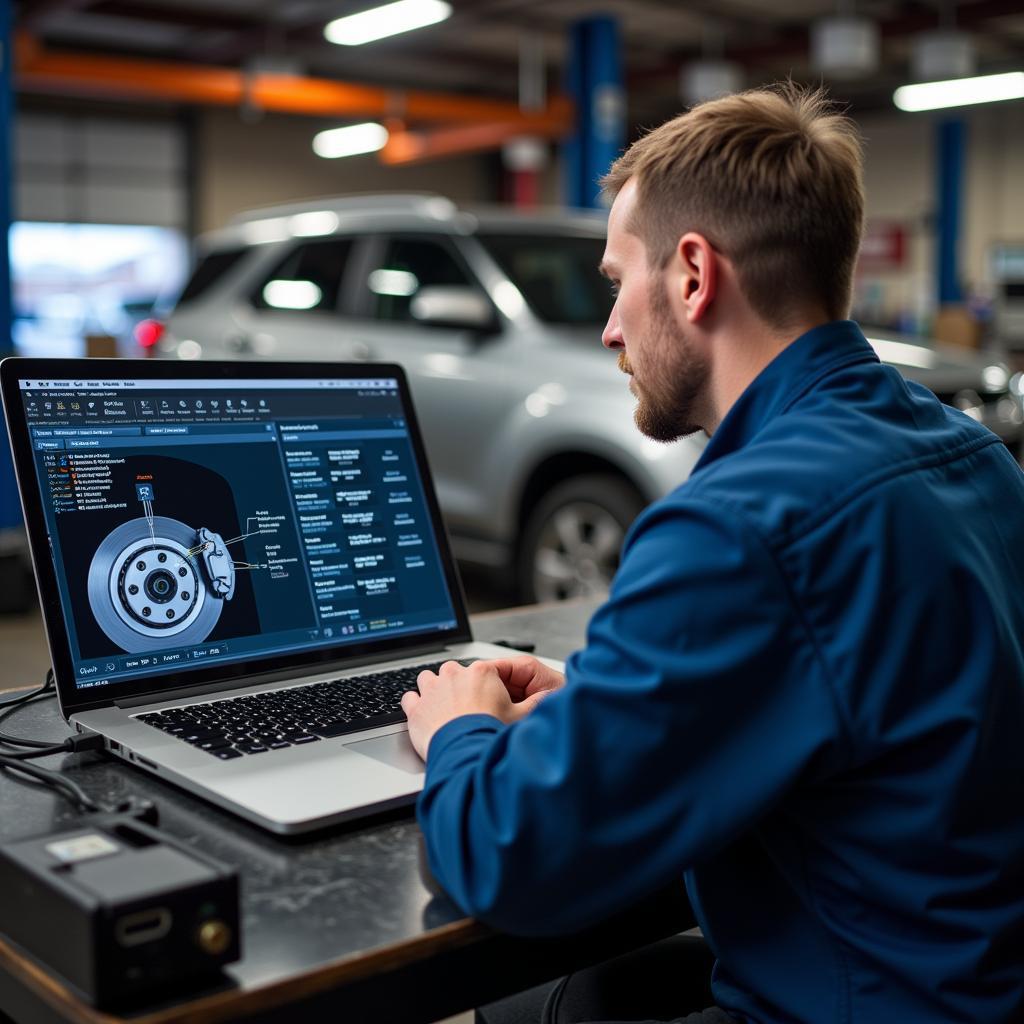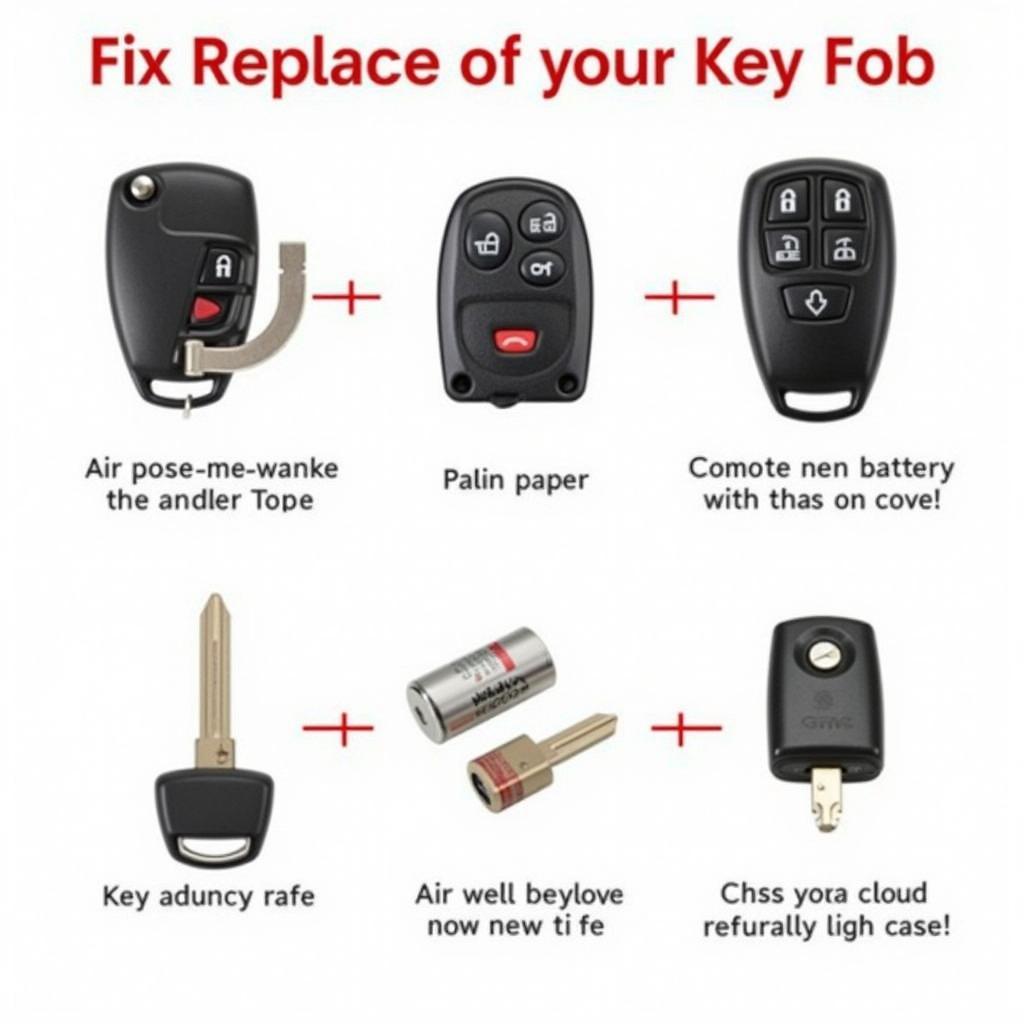The 2012 Nissan Versa, like most modern vehicles, is equipped with a brake warning light on the dashboard. This light is a crucial part of the car’s safety system, designed to alert the driver of potential issues with the braking system. If you’re driving a 2012 Versa and see this light illuminated, it’s essential not to ignore it.
Understanding the Brake Warning Light
The brake warning light, often symbolized by an exclamation mark within a circle or parentheses, can illuminate for several reasons. While it’s commonly associated with a problem in the braking system, it can also indicate other issues.
Common Reasons for the Brake Warning Light in a 2012 Nissan Versa:
-
Low Brake Fluid: One of the most frequent reasons for the warning light is low brake fluid. Brake fluid is a hydraulic fluid that transmits force from the brake pedal to the wheels, enabling braking. Over time, brake fluid can leak or become depleted, triggering the warning light.
-
Engaged Parking Brake: Sometimes, the simplest explanation is the most likely one. If you’ve left your parking brake even slightly engaged, the brake warning light might illuminate.
-
Faulty Brake Light Switch: The brake light switch activates your brake lights when you press the brake pedal. If this switch malfunctions, it can also trigger the warning light.
-
ABS Issue: The 2012 Nissan Versa comes standard with an Anti-lock Braking System (ABS). If there’s a problem with the ABS system, the warning light might come on.
-
Brake Pad Wear: While not as common as other causes, worn brake pads can also trigger the warning light in some vehicles.
 2012 Nissan Versa dashboard with brake warning light illuminated
2012 Nissan Versa dashboard with brake warning light illuminated
What to Do When the Brake Warning Light Comes On
Seeing the brake warning light illuminated can be concerning, but it’s crucial to remain calm and take the following steps:
-
Safely Pull Over: As soon as it’s safe, pull over to the side of the road and come to a complete stop.
-
Check Your Parking Brake: Make sure your parking brake is fully disengaged. If it was on, disengage it and see if the warning light turns off.
-
Check Brake Fluid Level: Carefully locate the brake fluid reservoir under the hood (refer to your owner’s manual for the exact location). Visually inspect the fluid level. If it’s low, you’ll likely need to add more.
-
Inspect for Leaks: While checking the brake fluid, look for any signs of leaks around the reservoir, brake lines, or near the wheels.
-
Avoid Driving Further: If the brake fluid is significantly low, you see a leak, or the light remains on even after disengaging the parking brake, it’s unsafe to continue driving. Call for roadside assistance or have your car towed to a mechanic.
Remote Diagnostics and Software Solutions
Advancements in automotive technology have paved the way for remote diagnostics and software solutions for certain car problems. These technologies can be particularly helpful in diagnosing issues related to the brake warning light.
 Mechanic using a laptop for remote diagnostics on a car
Mechanic using a laptop for remote diagnostics on a car
For instance, a qualified technician can remotely connect to your 2012 Nissan Versa’s onboard computer system to:
- Read Diagnostic Trouble Codes (DTCs): These codes, stored in the car’s computer, can pinpoint the specific area of the braking system that’s experiencing problems.
- Analyze Sensor Data: Data from various sensors in the braking system, such as the wheel speed sensors (essential for ABS), can be analyzed remotely to identify potential malfunctions.
- Perform Software Updates: In some cases, a software update to the car’s Electronic Control Unit (ECU) might be necessary to resolve brake warning light issues.
“Remote diagnostics are becoming increasingly valuable for car owners,” says John Smith, a senior automotive electrical engineer specializing in remote diagnostics. “They offer convenience and can often provide faster solutions compared to traditional repair methods.”
When to Seek Professional Help
While some issues that trigger the brake warning light can be straightforward to address, it’s always recommended to consult a qualified mechanic, especially if:
- The warning light remains on after adding brake fluid and checking the parking brake.
- You notice a leak in the braking system.
- You experience any changes in brake pedal feel (spongy, hard to press, goes to the floor).
- You hear unusual noises when applying the brakes.
Conclusion
The brake warning light in your 2012 Nissan Versa is a crucial safety feature. Understanding its potential causes and knowing the appropriate actions to take can help you ensure your safety and prevent further damage to your vehicle. Remember, regular maintenance and timely attention to warning lights are key to safe and worry-free driving.


